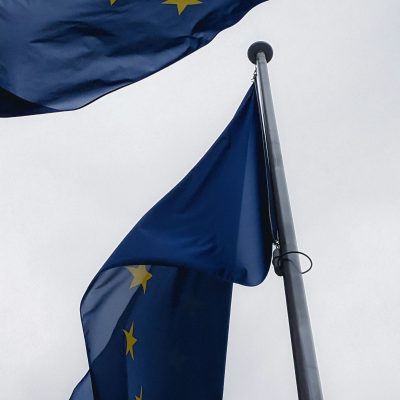Élections européennes: répondre aux attentes d’une opinion publique fragmentée dans un nouvel âge des incertitudes
En partenariat avec Sciences Po

Les prochaines élections européennes constitueront un moment démocratique essentiel pour les citoyens européens. Ce sera une occasion importante (tous les cinq ans) de choisir directement leurs représentants européens au suffrage universel direct. Le contexte dans lequel auront lieu ces élections met en évidence des défis lancés aux Européens dont les réponses pourront être – en partie au moins – forgés par des choix législatifs et budgétaires dans le cadre de la prochaine législature pendant les cinq ans à venir. Les rapports de force partisans qui découleront de ce scrutin impacteront non seulement l’agenda de la future Commission mais plus largement l’orientation de la politique européenne à l’horizon 2030.
Dans ce contexte, les citoyens expriment un intérêt accru pour les prochaines élections européennes sous les effets des crises récentes et aussi d’une forme de « normalisation » de la vie politique européenne. Ils expriment des préoccupations et des attentes qui constitueront des priorités politiques au coeur de leur demande démocratique : inquiétude et pessimisme très fort sur le plan socio-économique, du fait de l’inflation et de la stagnation de l’activité qui ont résulté de la crise énergétique ; défense de leur pouvoir d’achat, de leur santé, lutte contre le changement climatique, défense de leur sécurité, immigration et asile qui figurent actuellement en neuvième position parmi les priorités identifiées. Face au retour de la guerre sur le continent européen, aux tensions diplomatiques et commerciales entre les États-Unis et la Chine mais également à l’urgence climatique et à l’accélération des transformations technologiques, énergétiques et numériques les Européens prennent conscience de la nécessité de renforcer la coopération européenne dans ces domaines. Sur la longue durée, les enquêtes d’opinion montrent qu’il existe un fort soutien de l’opinion publique en faveur de politiques européennes communes dans les domaines touchant à des « biens communs européens » tels que l’énergie et la défense notamment.
Il faut cependant aller plus loin dans la compréhension des attitudes des Européens vis-à-vis de l’intégration européenne. La distinction entre soutiens « diffus » et « spécifique » permet de ne pas mettre sur le même pied d’analyse l’attachement aux principes de l’intégration européenne (le soutien « diffus ») d’un côté, et les évaluations ou demandes en matière de politiques publiques (ce que l’on appelle le soutien « spécifique »), de l’autre.





